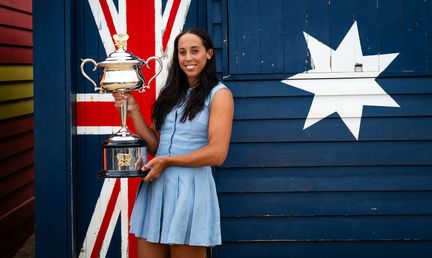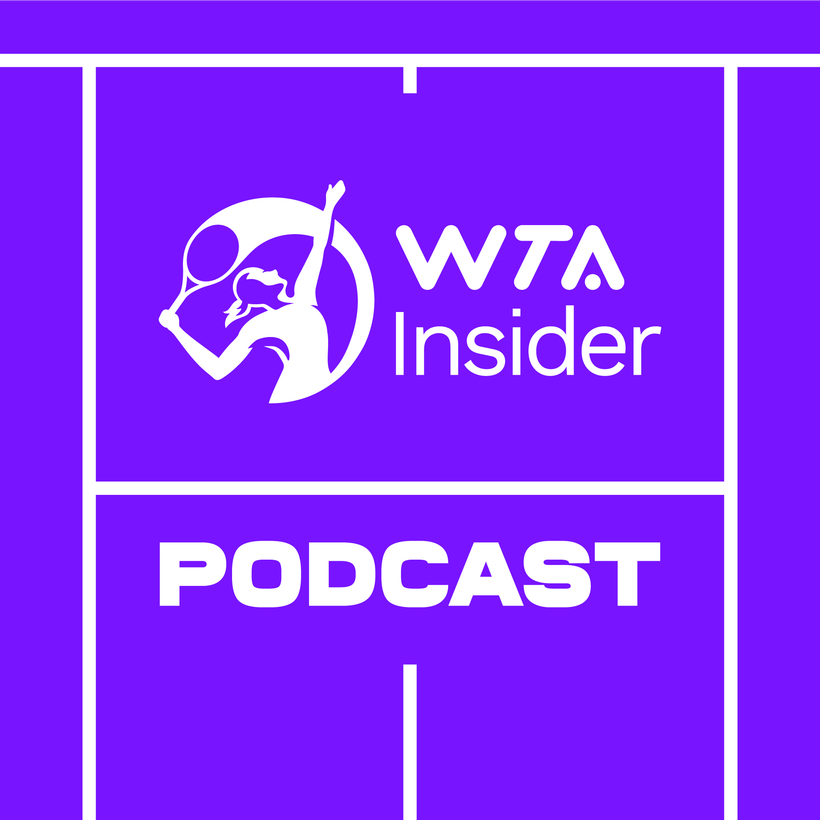NEW YORK, NY, USA - No.8 seed Karolina Pliskova has reached the US Open quarterfinals for the third year in a row with an efficient 6-4, 6-4 defeat of No.18 seed Ashleigh Barty.
The Australian had beaten Pliskova on two of their three previous meetings, including a dramatic 4-6, 7-6(3), 7-6(2) victory in last year's Wuhan quarterfinals; indeed, five of the pair's eight past sets had gone to a tiebreak, as befitting two of the players most proficient at using their serve to set points up. There was to be no such reprise of those narrow contests today - though, the Czech, said, matters were closer than the scoreline suggested. "It looks easy, the score, for sure," she said afterwards. "But we played hour and a half and was not easy at all."
Barty, playing her maiden major fourth round, was unable to seize the advantage by serving first. Instead, the Nottingham champion was broken from 40-0 up in the opening game, thanks to first a misfiring backhand - her slice would continue to hit the net or drift long for much of the match - and then an unfortunate forehand putaway sent over the baseline on Pliskova's first break point.
Louis Armstrong Stadium:@KaPliskova playing some fine tennis and leads Barty by a set and a break...#USOpen pic.twitter.com/FfLYN6ohGp
— US Open Tennis (@usopen) September 2, 2018
By contrast, the 2016 US Open runner-up's entire repertoire was operating smoothly. A dropshot-volley combination in the second game demonstrated her confidence; indeed, Pliskova would successfully take the net away from her forecourt-loving opponent throughout the match, eventually winning 15 out of 21 points there.
But Pliskova was also focused on a simple, winning strategy: target the errant Barty backhand constantly and with no let-up. In rally after rally, the former World No.1 directed ball after ball to that wing - and even when the Sydney runner-up was able to keep her slice in court, it would end up floating rather than biting, and Pliskova would be thoroughly unbothered by it.
Afterwards, she was content with the execution of her strategy. "That was my plan, just to stay in the rallies, hold her on backhand, and if I have a chance to attack and hold my serve," she revealed. "That's what I did perfectly today."
The Stuttgart champion's reward was to see Barty's unforced error count climb higher and higher, eventually reaching 30 to her 29 winners. And although the 22-year-old's forehand wing would prove dangerous at times, flashing some delightfully angled winners past a static Pliskova, it was also unreliable. A rare lapse on serve in the eighth game saw Barty hold a 0-40 lead - but all three chances to break back would disappear swiftly, the first two with cheap forehands sent wide. Two games later, Pliskova had taken the set with little drama.
2016 Finalist @KaPliskova is headed back to the QFs with a 6-4, 6-4 victory over Barty...#USOpen pic.twitter.com/P7jO0kByiY
— US Open Tennis (@usopen) September 2, 2018
Barty's poor break point conversion rate would continue to haunt her in the second set. Two chances to take the lead came and went in the second game; three opportunities to get the break back followed in the fourth. By contrast, in between those games, Pliskova needed just one break point - set up after Barty's second double fault - to capture her rival's delivery with a booming backhand winner. Her two-for-two conversion rate, one in each set, was an illustration of her supreme efficiency today.
"I was just able, I think, to play much better on the big points," said Pliskova. "Especially the break points."
Though the Montréal semifinalist's forehand was again proving wobbly at times of importance, Pliskova was also demonstrating impressive clutch play. The 26-year-old would save the second break point of the match with a brilliant lob-volley lofted over Barty's head, and the fifth with the best rally of the match, an all-court thriller that she ended with an emphatic forehand thudded away.
Thereafter, the match went with solid holds to another undramatic end: though Barty continued to attack with her forehand, Pliskova simply hammered down four service winners in the final game to seal her berth in the last eight. There, the Czech will face No.17 seed Serena Williams - whom she defeated in their last meeting in New York, in the 2016 semifinals.
"It will be, for me, a dream to play again on Arthur Ashe, for sure, and to play Serena, because obviously last match we played, I won," smiled Pliskova. "Since then, we didn't play. A lot of things happen between. That will be, I think, a match where I want to repeat on Arthur Ashe where we played in 2016."
Alongside Sloane Stephens and Elina Svitolina, Pliskova is one of just three Top 10 players remaining in the draw - a larger number, she pointed out wryly, than at Wimbledon, where she was the sole Top 10 seed in the fourth round. "I'm not playing the best tennis this year," she admitted of a season in which she has reached just one final. "But somehow on the Grand Slams... my mentality was working. Doesn't matter if I'm not feeling great or if I'm playing bad or whatever, they play great, but I'm just able to get through those matches."
Her secret? Not overthinking matters. "I'm always trying to relax and [not] think that the situation is that difficult," Pliskova explained. "Just to play easy, to play the first thought I have and not to make things complicated.
"I have so many shots that I can play. I can do a lot of winners, so I'm pretty confident about playing big points."
As for any pressure she feels as a rare Top 10 representative? It's not unique, she said. "Everybody has pressure," the Australian Open quarterfinalist pointed out. "Even if they are not seeded, they have the pressure to finish the match, everybody just has the pressure. So you cannot play without it.
"It's just, you know, sometimes make things a little bit easier in the head. It's just tennis. So it's not stress about winning or losing. Losing is bad, but it's not like horrible, and there is next tournament almost every week. So I'm trying to not make tragic thing from that."






